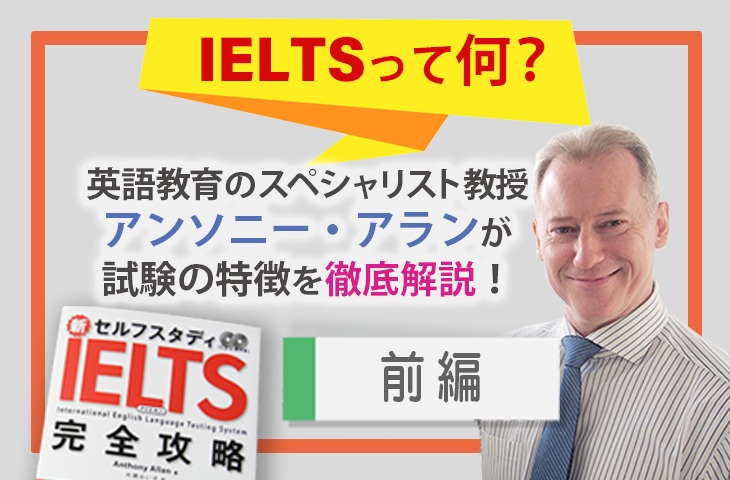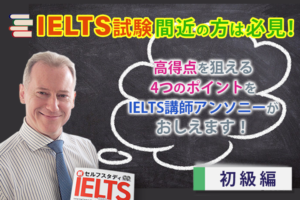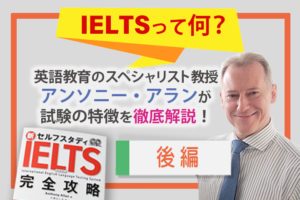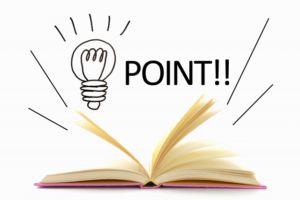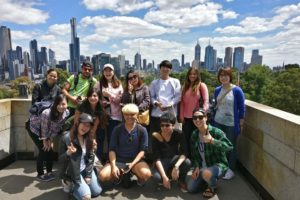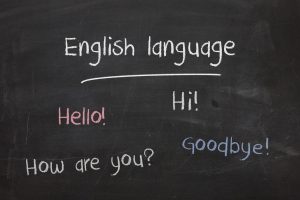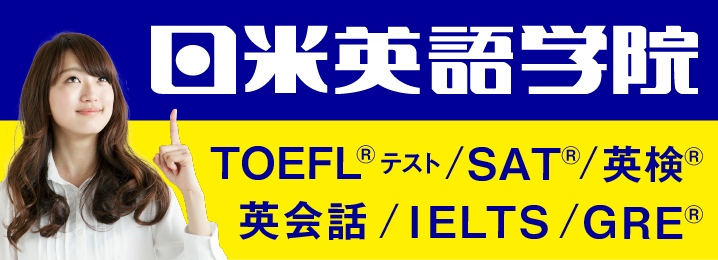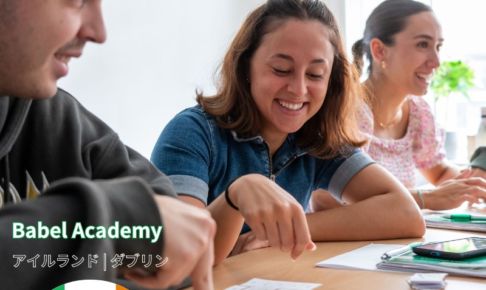皆さんこんにちは、英語の勉強は順調ですか!?😃📒
今回は、IELTSのエキスパートであるアンソニー・アラン先生に、IELTSとは何か、試験の注意点、勉強法についてのアドバイスをインタビューしてみました!👂
アンソニー・アラン|Anthony Allan
イギリス生まれ、イギリスの大学で、英語教授法修士号(Master of Science in TESOL)取得。英語教育に携わり20年以上、日本人の弱点を熟知したレッスンと独自のカリキュラムに定評あり。英語教授のエキスパートとして著書も多数。
アフィニティ・ランゲージでは、マンツーマンレッスンを行っており、日本人に合った英語マスター法には多くのリピーターがいる。
目次
TOEFL iBTしか受けたことない人が、IELTSを受けるための注意点を教えてください。
⇒Well, the most obvious difference is that the iBT TOEFL test is done on a computer whereas the IELTS is basically a paper-based test. This means that for the IELTS you must write all answers using a pencil. Therefore, if you are a slow writer, you may not be able to finish both of the Writing tasks in the IELTS. You also have to be careful about spelling, especially in the Listening & Reading sections of the IELTS. In the iBT, you just click on an answer so there isn’t a possibility of making a spelling mistake. However, in the IELTS Listening you have to write words so spelling is important. And in the IELTS Reading, you have to copy words from the passage, so you have to make sure you copy them correctly. I would like to mention that IELTS does offer a computer-delivered test at some venues, but the number of test-takers is still very, very small.
最も大きな違いは、iBT TOEFLはコンピューターを使って受ける試験ですが、IELTSは基本的に筆記試験であるため、どの設問にも鉛筆を使って解答していきます。そのため、書くのが遅い方はライティングパートの2つの設問を時間内に終えることが難しくなります。また、特にリスニングパートとリーディングパートではスペルミスにも気をつけないといけません。iBTでは解答をクリックして選んでいくのに対して、IELTSのリスニングパートでは解答を書いていくため、スペルは大変重要です。リーディングパートでは、問題文から単語をコピーできますが、その際に書き間違えないように気をつける必要があります。IELTSも限られた会場でのみコンピューターで受けられますが、受験者数はまだ非常に少ないです。IELTSとTOEFLを並行して勉強することは可能でしょうか。
⇒Yes, it is possible, but not advisable since they are different tests. I have never met a student who studied for both tests. However, students studying for the iBT sometimes stop and change to studying for the IELTS test. This is because the IELTS is often seen as easier than the iBT test. However, this doesn’t mean the IELTS is easy. Personally, I think it is easier than the iBT and it measures English skills in a more practical way.
可能ですが、異なる試験のためおすすめはしていませんし、両方の試験勉強をしていた生徒さんはこれまでにいませんでした。しかし、iBTの勉強をしていた方が中断してIELTSの勉強に切り替えることはあります。これはIELTSの方がiBTよりも易しいと思われることが多いためですが、決してIELTSが簡単なわけではありません。個人的には、iBTよりは易しく、より実践的な方法で英語力を測れる試験だと思います。英検しか受けたことない人が、IELTSを受けるための注意点は何ですか。
⇒They should be careful about knowing the differences regarding test structure and question types, and especially the target age of test-takers. IELTS can only be taken by people aged 16 or over, whereas Eiken is taken by younger students. This means the content of the IELTS is aimed at young adults and adults, so the content matter is more mature in nature. For example, in IELTS Task 2 writing you may be asked to write about employment/unemployment or raising children, which is difficult if you have never had these experiences or haven’t been surrounded by peers who have had them.
テストの構成と設問の種類の違いに加えて、対象となる受験者の年齢にも違いがあることを理解しておく必要があります。IELTSは16歳以上の方が受験可能な試験であるのに対して、英検はより低年齢の方でも受験できます。IELTSは高校生以上の方向けに作られているため、より大人向けの内容となっています。例えば、ライティングパートのタスク2では、雇用や失業に関してや子育てについて聞かれるかもしれません。自身にその経験がなく、周りにそのような経験のある方がいないと答えるのが難しくなります。英検3級の人が、IELTS4.0を獲得するのは難しいですか。
⇒Yes, because Eiken 3 = IELTS 3.0, so the gap to IELTS 4.0 is large. In addition, there are more questions for each section (Reading, Listening, Writing and Speaking) in the IELTS, and especially the Writing section of IELTS is much longer. But if students are very motivated and have enough time to study in order to get IELTS 4.0, it is possible.
はい、難しいです。英検3級はIELTS3.0相当ですので、IELTS4.0レベルとの差は大きいです。また、IELTSのほうが各パート(リーディング、リスニング、ライティング、スピーキング)の問題数が多く、特にライティングパートは長いです。モチベーションが高く、十分に学習時間を確保できるのであれば、IELTS4.0獲得も可能です。Speakingとは、どんなことを聞かれたり、話したりするのですか。
⇒Test-takers are asked about topics that concern their daily lives, such as their neighbourhood, their family, their school, their workplace, their hobbies etc., and society in general. They are not asked about the details of difficult topics like physics or sensitive topics like religion or politics, for example. Basically, in Part 1 you are asked to talk about things that concern you, and in Part 3, things that concern society.
日常生活のことを聞かれます。例えば、近所のこと、家族のこと、職場のこと、趣味のことや一般的な社会のことに関することです。例えば物理のような難しいトピックや、宗教や政治といったようなデリケートなことに関して聞かれることはありません。基本的に、パート1では受験者に関することを聞かれ、パート3では社会に関することを聞かれます。

